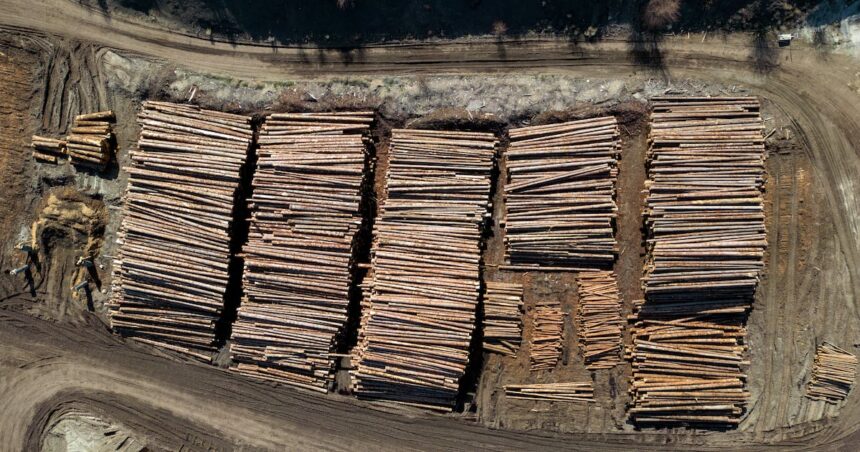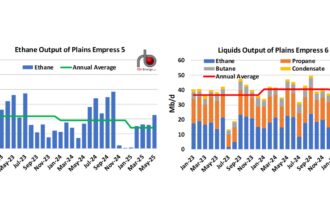The long-running softwood lumber dispute between Canada and the United States has escalated once again. U.S. customs officials received orders this week to begin collecting significantly higher tariffs on Canadian softwood lumber imports, with duties now averaging 14.54%, up from 8.05%.
This final determination by the U.S. Department of Commerce represents a sharp increase that will directly impact Canada’s $9.3 billion lumber export industry. The decision comes despite Canada’s continued opposition to what it maintains are “unfair and unwarranted” duties.
“This nearly 80% increase in tariff rates hits Canadian producers at a particularly vulnerable time,” said industry analyst Marcus Thompson, who tracks North American lumber markets. “With housing starts already under pressure from high interest rates, these additional costs create a perfect storm for Canadian mills.”
The dispute centers on the U.S. allegation that Canada unfairly subsidizes its lumber industry through provincial stumpage systems, where companies pay fees to harvest timber on public lands. American producers have long argued this constitutes an unfair trade advantage.
Canadian Trade Minister Mary Ng responded forcefully to the announcement, stating Canada would “use all avenues” to fight the decision, including potential challenges through NAFTA and World Trade Organization mechanisms. This marks the fifth time since 1982 that Canada has faced U.S. duties on softwood lumber.
Data from industry reports show the impact will be particularly severe in British Columbia, which accounts for approximately 50% of Canada’s softwood lumber exports to the U.S. Small and medium-sized mill operators face potential layoffs if the higher duties remain in place.
“We’ve survived previous rounds of duties, but this increase comes when margins are already razor-thin,” said Jennifer Calhoun, operations director at a mid-sized mill in northern B.C. “Every percentage point increase means potential job losses in communities where these mills are economic anchors.”
The timing compounds challenges for Canada’s forestry sector, which has already weathered pandemic-related supply chain disruptions and wildfire impacts across western provinces. Meanwhile, U.S. construction firms worry the tariffs will further drive up building costs, potentially slowing housing development when affordable housing remains in short supply.
Economic projections from CO24 Business indicate the duties could cost Canadian producers upwards of $800 million annually if exports remain at current levels. The announcement has already triggered volatility in lumber futures markets.
The dispute highlights the complex trade relationship between the closely integrated economies. While the USMCA trade agreement governs most Canada-U.S. commerce, softwood lumber operates under a separate framework that has repeatedly led to friction.
As Canadian officials prepare their legal response, mill operators across British Columbia, Quebec, and New Brunswick must now factor these heightened costs into their business models—with communities dependent on forestry jobs watching closely for potential ripple effects throughout local economies.
For ongoing coverage of this developing story and its impact on regional economies, visit CO24 Breaking News.


















